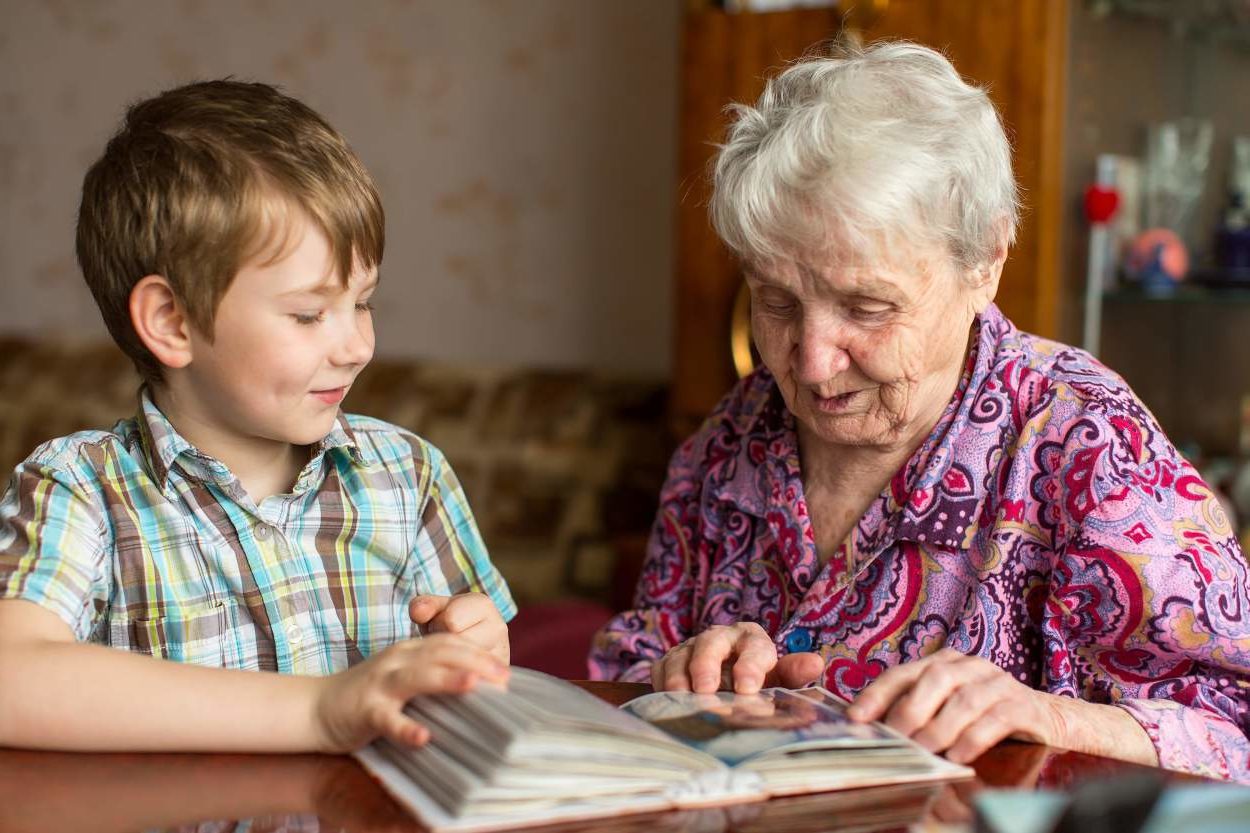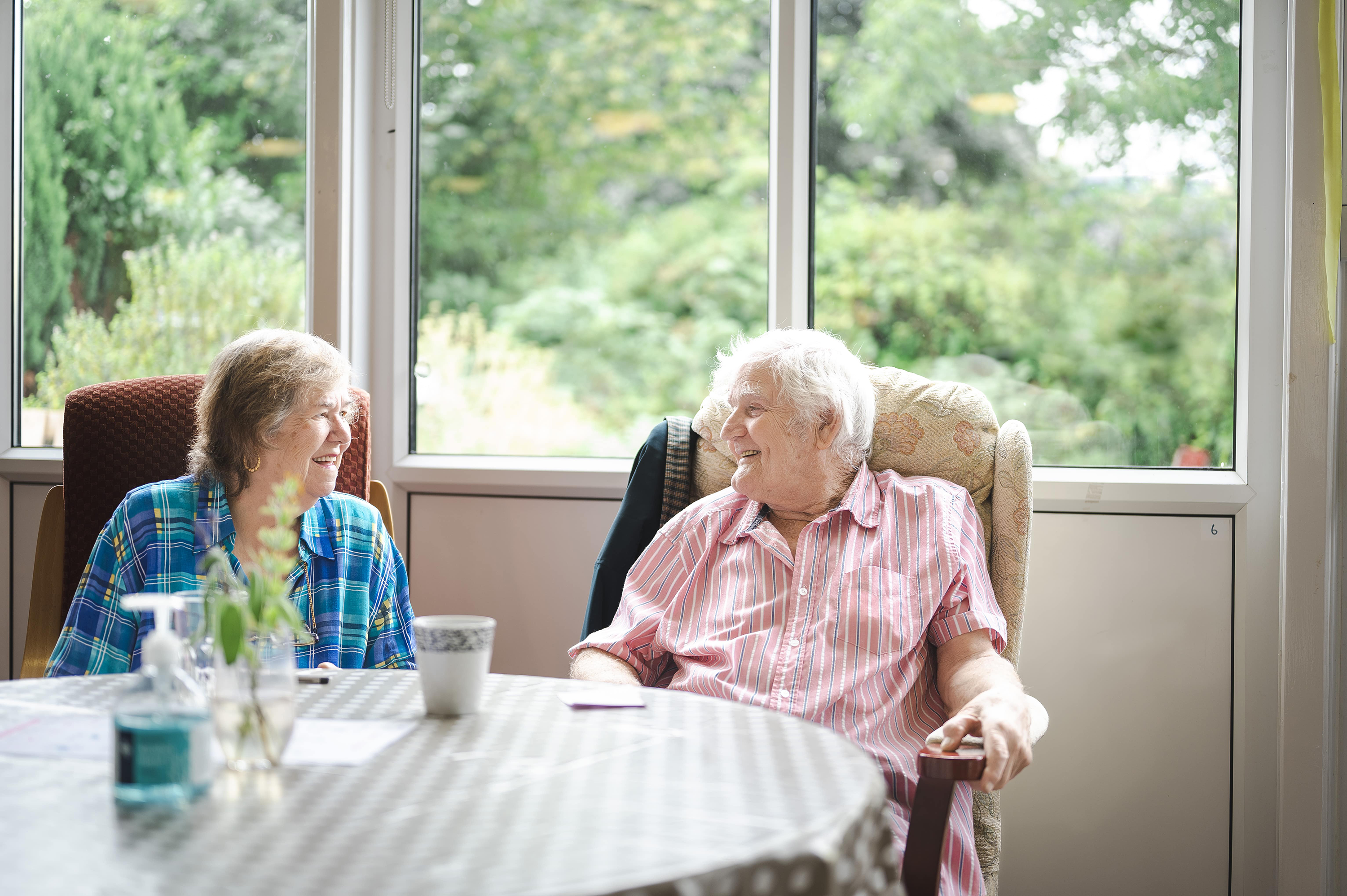The cost of care – everything you need to know

Everyone wants to find somewhere safe, secure and comfortable for those they love, but there’s no easy way around the question of just how much high-quality, trusted care will cost.
That’s why we’ve put together this guide covering all the information you need about the cost of long-term care, to help you make the decision that’s right for you. Whether you’re just starting to consider the options available to you or you’re much further down the road, this guide is the ideal place to get a better understanding of the costs involved when arranging the most popular types of care available in the UK.
We’ll walk you through the variety of care options and the average costs of each of them. We’ll then take a look at the forms of support available to you – from government subsidies to equity release schemes – as well as break down the legalese you’re bound to encounter along the way.
Home care – the basic costs
We’ll be honest: there’s no simple answer to how much each type of care will cost you.
It’s probably not what you wanted to hear, we know. But while we’d love to tell you exactly how much you can expect to pay each year, it’s impossible to say without knowing your personal circumstances – how much care you or your relative needs, where you live and so on.
What we can do is take you through the basic costs of each of the five most popular care options. We’ll start with three types of care that take place in the home: caring for someone yourself, domiciliary care and live-in care.
1. Caring for someone yourself
- provides ongoing practical, personal and emotional support
- Ensures you have more control over scheduling
- Suitable only for someone with low-level needs
How does caring for someone yourself work?
When you care for a loved one yourself, you take personal responsibility for their care duties, and may also provide support with everyday tasks.
There are two ways you might choose to do this. You can either visit them in their own home and provide care on an intermittent basis, or you can invite them to live with you and look after them as and when they need it.
By choosing to visit someone in their own home, you have the flexibility to offer as much care as required when it suits you. The person you’re looking after meanwhile, is able to stay put and maintain their existing support structure. In short, neither of you needs to significantly change the way you like to do things.
It’s no major surprise that many UK carers and care recipients prefer this option, but it’s not always suitable. After all, your relative may require more attention than intermittent visits can provide, it may become a struggle to balance caring with other responsibilities, such as work or childcare, and distance may prove a stumbling block if you’re not based in the same area.
In these instances, you might prefer to care for them by moving them into your own home – or moving into theirs. This means you’re on hand to offer support – medical, physical or emotional – whenever they need it.
The cost of caring for someone yourself
If your loved one lives independently, your home or theirs may need to be adapted to accommodate their changing needs.
You may, for example, need to budget for a range of specialist equipment: handrails (average UK cost £150-200 each, including installation), stairlifts (£2,000 and up) and easy-access shower facilities (£2000 and up, depending on requirements, plus labour), to name a few. You may also need to improve overall accessibility to your property, with ramps from around £50. If you’re planning any adaptations, it’s worth checking if you’re eligible for a £1000 grant from your local council. You can also apply for further financial support via the Disabled Facilities Grant, or the charity Independence at Home.
On top of adaptation costs, there are little day to day expenses to consider too – bills, petrol, shopping and more – which can start to add up. Given that they depend so heavily on the extent of care involved, it’s hard to estimate exactly how much this will cost. That’s why we recommend getting into the habit of creating a plan and tracking out-goings to start to build a clearer picture.
Plans are a useful way to predict what you might spend in the next quarter- or half-year, and to see how your prediction stacks up at the end of that same period. You should always overestimate every expense, to make sure you’re always within your budget and won’t be caught off-guard by those added costs you didn’t see coming.
Around £23 billion is spent on care each year in total, of which £15.7 billion is for residential care and £7.3 billion for domiciliary (in home) care.
Which Elderly Care
2. Domiciliary care
- Provides professional care alongside an independent lifestyle
- Limited control over scheduling
- Suitable for someone with low to mid-level needs
How does domiciliary care work?
In domiciliary care – also known as home care – your loved one receives home visits from a professional carer – these visits can be during the day, night, or both – and range from an hour or two – to 10-12 hours of support a day.
This means their way of life needn’t change significantly: they can continue to live independently – without having to depend on family support – while receiving dedicated care from a professional.
If their needs are limited, a daily check-in may be enough. But if they have particular medical requirements, they’ll likely need a district nurse or healthcare assistant to visit more regularly too – to administer medicine, change dressings, perform medical observation and so on. These caregivers can also help with personal care, including washing, dressing and feeding. If a person experiences distress or requires support at night, they may require an overnight or waking carer to monitor them.
The cost of domiciliary care
If your family opts for domiciliary care, you may need to cover the costs of home modifications too.
We’ve gone into this a little above, but there’s plenty of other equipment out there to help make your relative’s life easier, and a quick Google gives you a basic idea of how much it’ll all cost.
Professional care itself is generally charged at an hourly rate. During the day, this is likely to be anywhere between £20 and £40 per hour depending on where the care recipient is based and their needs. This price goes up for overnight care, and may be charged at a nightly rate rather than hourly – usually upwards of £100 a night. You may find you have to pay a little more at weekends and bank holidays, too.
Let’s say a home carer costs £17 an hour, and the care recipient needs them for two hours a day from Monday to Friday. By the end of the year, this will have cost you a total of around £8,900. That said, both your own peace of mind and your loved one’s continued independence can make this a worthwhile investment.
3. Live-in care
- Provides round-the-clock professional support and companionship
- Continued independence in familiar surroundings
- Ideal for someone with low to mid-level needs
How does live-in care work?
With live-in care, a professional caregiver moves into the care recipient’s home and provides 24-hour care by ensuring someone is on hand if they’re needed, around the clock.
There’s no need to uproot, you’ll just need to ensure their is a private bedroom for the live-in carer to move into. The care recipient can stay close to friends, family and the structure of support they’ve built up, all without compromising their independence. You, meanwhile, have the flexibility to visit when you can, knowing there’s always someone around when you’re not there.
With Elder’s live-in care service, the caregiver is a qualified professional, with specialist training in low to mid-level needs. They have experience in supporting physical and behavioural issues, with the added bonus of offering constant companionship to those most important to you.
The cost of live-in care
As your loved one is able to stay put in their own home, you may – as with the previous care options we’ve looked at – you’ll need to cover certain expenses to modify the property.
You need to pay the caregivers themselves on a weekly basis – either directly, or via an agency. Elder for example, works with self-employed carers, and care starts from around £1150 a week – inclusive of carer matching and sourcing a respite carer when your main carer takes a break. However, every quote is personalised to you and your level of need. You’ll often get more for your money, with dedicated, one-on-one support by the same carer, in familiar surroundings
Keep in mind that you will also have to come to any arrangement on a food budget. You can do this by working it out directly with the carer, or asking live-in care agencies to manage this for you. How much you need to pay can vary, but we’d typically suggest £40 per week towards your carer’s meals
You’ve started to get the gist of how much it would cost for your loved one to continue living in their own home. So let’s take a look at the costs of care in an assisted living facility and residential home, and see how it stacks up against what we’ve seen so far.
Care homes & assisted living – the basic costs
1. Assisted living
- Provides ongoing low-level care in new surroundings
- On-site access to a range of services and activities
- Ideal for low to high-level needs
How does assisted living work?
In an assisted living facility, residents have their own private living space – usually a self-contained apartment or bungalow – within a residential care complex.
Your loved one can live an independent life just as they did before, buying or renting a space which they can then call their own. If they have medical, physical issues or challenging behaviours, staff are on call 24 hours a day, and there’s emergency support in case of any accidents.
Otherwise, your loved one is free to enjoy daily life. They have access to communal facilities, including hairdressers, shops and gyms, and can experience a self-contained community of friends on their doorstep.
The cost of assisted living
To live in an assisted living facility, your loved one generally has to rent the home they stay in.
The value of the home depends on a number of factors, including its size and the number of communal services on offer in the facility – also, because you’re paying for a property (either buying or renting) location plays a significant factor too and can reflect the overall housing market in your area. For example, an average monthly rent for an assisted living property in London could be between £1300 to £4500 a month. However, in the Midlands this average can fall to between £850 to £2500 a month.
Homes come with their own cooking facilities, so you still need to cover the cost of groceries and other amenities. There’s no reason monthly living expenses needs to change, but, as ever, it’s worth putting together a plan based on what you already know of your loved one’s spending habits. Some community services may also cost extra, but these are entirely optional.
Keep in mind that if your loved one moves into an assisted living facility, they can put Personal Independence Payments (PIP) or attendance allowance towards the cost. We’ll go into both of these in more depth in the ‘Financial support from the government’ section.
When it comes to caring for an elderly person, it can be hard to strike a balance between giving what help is needed and being too overbearing. Try to treat the elder in your life with as much respect as possible, and he or she will be most likely be grateful for your assistance.
Shelley Webb, The Intentional Caregiver

Covering the costs of care
Maybe you’ve already settled on the kind of care that fits your family best. Maybe you’re still trying to come to a decision. Either way, now’s the perfect time to start thinking about government funding initiatives you may be able to take advantage of.
There’s a number of ways the government can help your family with the costs of care, and these initiatives could – eventually – make your life a lot easier. Only problem is, it’s often a long process to get there.
While we’re sorry to say we can’t do the applications for you, we can take you through the steps involved and point you to some important resources to help you research your options and know what to expect along the way.
Local authority funding
In some cases, you or your loved one may be able to receive funding from the local council.
You’ll need to speak directly to social services and ask to complete a care needs assessment to find out your eligibility. It’s worth highlighting that if you live in England or Northern Ireland and have assets of greater than £23,250, you’re automatically discounted. This figure differs for Wales (£50,000) and Scotland (£32,750).
The care needs assessment helps the local authority gain a better insight into the extent of care required. Anyone in need of care can do it themselves over the phone or in person, or a loved one can do it on their behalf. In either case, you’ll usually need to provide the care recipient’s:
- Address
- Date of birth
- Contact details
- GP’s address
At some point, they also need to complete a means test. This is essentially an appraisal of your or your loved one’s financial circumstances, to establish whether you can afford to contribute towards the total cost of care.
Your point of contact then comes back to you with their decision as to whether you’re eligible for funding, and, if so, a recommended care plan. Once agreed, it’s put into writing.
How much can we expect to receive?
There’s a limited amount of money available for local councils to allocate, so those who receive full or majority funding are in short supply. This level of funding generally goes to those who live alone, have recently been discharged from hospital or can’t manage without care.
For those of lower priority, the council may agree to subsidise individual needs, such as rehabilitation or home adaptations. This is all laid out in a support plan, which outlines when, how often and from whom you’ll receive the required services. The financial value of this plan ultimately depends on your situation.
Direct payments
Direct payments – are a way for you to take control of your personal budget – i.e the money the council agree to pay towards your care (government contributions). These payments allow you to choose for yourself how you want to spend your funding. Anyone with a personal budget is entitled to apply for direct payments.
With traditional local authority funding – the council will manage your personal budget and arrange care on your behalf.
While both traditional local authority funding and direct payments ensure your loved one will receive ongoing financial support. Direct payments mean that rather than having to construct a care plan with another party, they can use this money however they see fit. This gives your family more choice, control and flexibility over how you meet their care needs.
Self Directed Futures founder Chris Watson on personalising care
NHS Continuing Healthcare (CHC)
NHS Continuing Healthcare is a care plan which includes full financing for any services that take place outside the hospital.
To find out if you or a relative is eligible, you’ll need to raise the subject with a doctor, and complete an initial checklist. You’ll then be invited to take part in a full assessment with a multidisciplinary team of healthcare professionals.
This group reflects on a whole range of needs – including behavioural, cognitive, physical and nutritional – and assesses which of them, if any, are priority concerns. They look into the complexity and severity of these requirements, and how predictable they are moving forward.
You’ll then receive a decision about whether or not your loved one will receive these sources of funding for care. If they do, your family then works collaboratively with a professional to create a bespoke care and support package.
It’s worth noting that the above process reflects the CHC process in England. In Wales it may work differently, and in Scotland the funding stream has been replaced with an initiative called Hospital Based Complex Clinical Care (HBCCC).
In any case, CHC or HBCCC is only awarded to people with a high level of care needs – usually life-limiting conditions that are best supported in a specialist facility, such as a care home.
How much can we expect to receive?
If you receive NHS Continuing Healthcare, your loved one won’t have to pay a penny towards the cost of care outside the hospital.
They’re only considered eligible, however, if they are perceived as having severe needs in at least two of their priority areas. Keep in mind, too, that funding depends on need rather than diagnosis. In short, if the needs of your loved one change – even if their medical condition hasn’t – your funding may be at risk.
In some cases, the NHS may decide to work with your local authority to cover the costs of care. This is known as a ‘joint package’.

Benefits for care recipients –
Personal Independence Payment (PIP)
Personal Independence Payment, also known as PIP, goes towards the costs of long-term health conditions and disability for those below the age of 65. It’s very similar to Disability Living Allowance, which is being phased out in favour of PIP. If you’re in Scotland, You need to apply for Adult Disability Payment (ADP) instead.
PIP is made up of two components, and each of these is paid at a standard or an enhanced rate.
- Standard weekly rate for daily living component – £68.10
- Standard weekly rate for mobility component – £26.90
- Enhanced weekly rate for daily living component- £101.75
- Enhanced weekly rate for mobility component – £71.00
To claim PIP, you’ll need to get in touch with the Department for Work and Pensions (DWP). The assessment isn’t means tested, which means your loved one is evaluated based on the support they require rather than on their financial circumstances.
After a routine medical assessment, your relative will find out if they’re eligible to receive PIP, and what component they fall into.
Attendance allowance
Attendance allowance helps cover the costs of care for those aged 65 and over. Like PIP, it isn’t means tested.
Attendance allowance is specifically designed for those who need help with everyday activities, getting around and medical care. There are two rates available:
- Higher rate of £101.75 a week
- Lower rate of £68.10 a week
To claim Attendance Allowance, you’ll need to fill in a claim form and fire it over to the DWP. They’ll then get back to you to discuss the care recipient further, and to confirm their eligibility.
Benefits for carers
If you look after someone for 35 hours or more a week, you may be entitled to carer’s allowance.
This is up to £76.75 a week, though whether you receive the full amount depends on your financial situation. Make sure you also check the eligibility criteria carefully, as the person in your care must be a recipient of certain benefits – PIP, attendance allowance and so on – themselves.
If you look after someone for at least 20 hours a week, you may instead be entitled to National Insurance credits.
You should also use an online benefits calculator to investigate other means-tested benefits. You may be in the running for:
- Income support
- Income-related employment and support allowance
- Jobseeker’s allowance
- Pension credit
- Universal credit
Paying for care without support
Once you’ve exhausted your options with the government, it’s time to turn your attention to the ways you can fund care for yourselves.
Savings and pension will go some way to help, and your loved one may have an insurance policy in place to ease the financial burden. They may even have assets they’ve been holding onto, which could help towards the cost of care.
But these options often only go part of the way to pay off your chosen care solution. That’s why many people look to leverage value in their homes – by selling up, or by taking advantage of an equity release scheme.
What is equity release?
Equity release is the process of freeing up the money tied up in your home without having to move out.
Equity release schemes enable you to generate an additional income or access a cash sum, which you can then use to privately fund care without support from the government. The amount you make available depends on a number of factors, including the value of the property, the outstanding mortgage and the borrower’s age and wellbeing.
There are two key types: lifetime mortgages and home reversion.
Lifetime mortgages
A lifetime mortgage is a tax-free loan secured against your home. The borrower repays the loan, plus the interest it’s accumulated, at the end of the mortgage term – when they sell the property or pass away.
Anyone over the age of 55 can take out a lifetime mortgage on their property as long as it’s their main residence, and they can choose to receive a one-off payment or a regular income. All the while, you still own your home, and can continue to live there for as long as you like.
When the mortgage term ends, the loan is paid off, along with the rolled-up interest in full. Alternatively, you might choose to pay the interest off on an ad hoc basis, to reduce the impact of compound interest.
Home reversion
Home reversion is the process of selling all or part of your home to a specialist provider, in exchange for a tax-free lump sum or regular payments. It is available to all over 65s in the UK.
The homeowner sells their property, or tranches of it, at a price usually between 20% and 60% of its actual market value. How much they receive depends heavily on their age and state of health.
They then effectively become a rent-free tenant of the provider, though this shouldn’t affect them on a day-to-day basis. It’s only upon the sale of the property that the reversion company gets its share of the proceeds.
If you’ve learned one thing from this guide, it’s probably this: paying for care is a minefield.
Hardly surprising, then, that those in need of care may well need someone to navigate this tricky path on their behalf. That’s why they may want to consider setting up a power of attorney over their financial affairs.
“You're not obliged to get professional advice when choosing how to finance your long-term care, but in most cases it's crucial to do so.”
The Money Advice Service
What is a power of attorney?
Power of attorney grants someone the right to make decisions about someone else’s money on their behalf.
There are two types: ordinary powers of attorney and lasting powers of attorney.
Ordinary powers of attorney
A person temporarily confers financial authority upon someone they trust (an ‘attorney’). This means, for example, they give another person control over their finances while they’re in hospital, or if they’re physically unable to visit a bank. They can also define which assets – property, savings and so on – this attorney has a say over.
In short, it’s an option for those who require assistance from time to time, but are still mentally capable of making decisions.
Lasting powers of attorney
A person gives someone they trust the right to manage their financial affairs on an indefinite basis.
Unlike an ordinary power of attorney, a lasting power of attorney (LPA) is still valid even if your loved one’s mental health declines. This means someone will step in when the person is unable to sufficiently grasp the potential consequences of a decision they need to make. Those diagnosed with dementia often decide to pursue this option.
Just as in the case of ordinary powers of attorney, however, an LPA is valid only as far as the person is willing to permit.
This may extend to:
- Paying off a mortgage
- Maintaining a property
- Selling a home
- Cashing out investments
- Managing pensions and benefits
How to set up powers of attorney
To set up a power of attorney – ordinary or lasting – you’ll first need to register with the Office of the Public Guardian. This usually costs between £82. For more information, AgeUK have produced a comprehensive guide on how powers of attorney work.
Before you register, we recommend seeking advice from a solicitor. There are multiple independent sources providing good advice on how to find one, including the Law Society and Solicitors for the Elderly. Costs will vary, but it will likely prove a sound investment that saves you time and effort in the long run.
How Elder works
When you come to us, we’ll take our time to get to know your loved one.
We’ll find out what they like and what they don’t like, and get a feel for their personality. We’ll discover what they’re looking for in a carer, and answer any questions they might have along the way. And, once you’re both happy, we’ll introduce you to a carer we think might be perfect for you.
Elder-approved carers are some of the best in the UK, chosen by our in-house team of experts. That’s why only 10% of our applicants make the grade. But we go one step further, hand-picking someone from our list of top quality candidates who we think would fit right into your family.
You’ll have a chance to meet them and have a chat over a cup of tea, and, if we’ve got it right, we’ll get your care plan sorted in no time.
Paying for care with us
Our pricing is tailored to the care needs of the individual – so to receive your personalised quote, give our friendly team a call.
- No joining fee
- No surcharges on Bank Holidays or weekends
- A one week trial period, to see if care works for you and your family
- No additional fee if you need to request a new carer
- No lengthy contract or exit fee – all we require is a two weeks notice.
We have an expert team on hand to help you make more sense of your funding options. You’ll get your own dedicated advisor who can explain everything we’ve covered in this guide in even more detail, and recommend a funding plan to suit your own unique circumstances.
Why not discuss your needs with a Care Advisor?
Click the button below to book your no-obligation call. We’re here for you seven days a week.
Read more care guides

How to prepare for a live-in caregiver
Care at home: how to prepare the home for a live-in caregiver A live-in carer can make a massive difference to your loved one’s quality

6 tips for finding the right live-in carer
Finding the right live-in carer is a significant and deeply personal decision, impacting your loved one and the entire family. You’re seeking someone trustworthy, compassionate,

The cost of care – everything you need to know
The true cost of care – everything you need to know Discover the true cost of care and explore your funding options with our care

Understanding autism in older adults
While Autism is usually diagnosed in childhood, an increasing number of older adults are being formally diagnosed in later life. Masking autism symptoms can result

A guide to speaking with a loved one about home care
Why do older adults resist care? A guide to speaking with a loved one about home care Bringing up the topic of care at home

How to choose the right personal alarm for seniors: A comprehensive guide
Personal alarms for elderly Discover how personal alarms work, who they’re best suited to, and how they provide greater peace of mind to older people